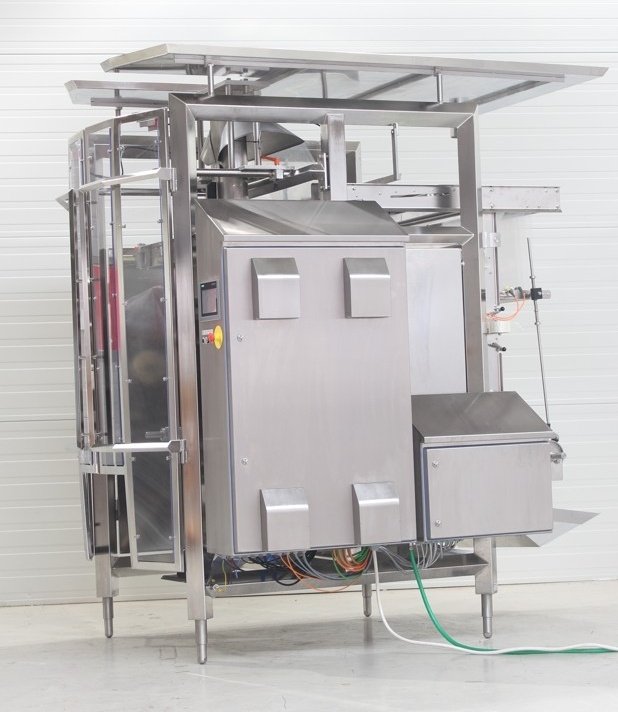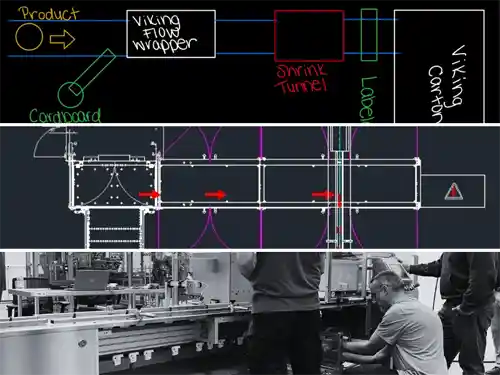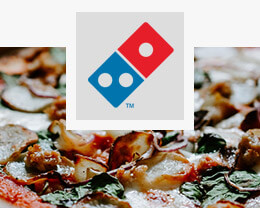What the Food Safety Modernization Act Means For Food Packaging
 According to the FDA, the Centers for Disease Control and Prevention reports that about 48 million people (1 in 6 Americans) get sick, 128,000 are hospitalized, and 3,000 die each year from foodborne diseases. This is a significant public health burden that can easily be prevented. Anyone who has experienced a foodborne illness can attest to how debilitating it can be. The Food Safety and Modernization Act (FSMA) aims to prevent foodborne illness by creating regulatory requirements for the food industry, covering food production from farm to table.
According to the FDA, the Centers for Disease Control and Prevention reports that about 48 million people (1 in 6 Americans) get sick, 128,000 are hospitalized, and 3,000 die each year from foodborne diseases. This is a significant public health burden that can easily be prevented. Anyone who has experienced a foodborne illness can attest to how debilitating it can be. The Food Safety and Modernization Act (FSMA) aims to prevent foodborne illness by creating regulatory requirements for the food industry, covering food production from farm to table.
Food Safety Modernization Act in a Nutshell
Since January 2013, FDA has proposed seven foundational rules to implement the Food Safety and Modernization Act. Those rules became final in 2015 and 2016. The elements of the FSMA can be divided into five key areas, according to the FDA:
- Preventive controls - For the first time, FDA has a legislative mandate to require comprehensive, prevention-based controls across the food supply to prevent or significantly minimize the likelihood of problems occurring.
- Inspection and Compliance - The legislation recognizes that inspection is an important means of holding industry accountable for its responsibility to produce safe food.
- Imported Food Safety - FDA has new tools to ensure that imported foods meet U.S. standards and are safe for our consumers.
- Response - For the first time, FDA has mandatory recall authority for all food products.
- Enhanced Partnerships - The legislation recognizes the importance of strengthening existing collaboration among all food safety agencies - U.S. federal, state, local, territorial, tribal and foreign--to achieve our public health goals.
What FSMA Means for Food Packaging Processes
For food manufacturers, preventative measures and accountability are the main areas of focus. As part of the FSMA's Preventative Controls for Human Food rule, producers must audit their current production processes and formulate safety plans to ensure minimal risk of food contamination. The FSMA intends for manufacturers of food to be proactive instead of reactive when it comes to foodborne illness, and will not hesitate to hold manufacturers accountable.
Do you process fresh produce? As part of the FSMA's Produce Safety rule, science-based standards for growing, harvesting, packaging, and holding produce will be put into place. This rule establishes standards for machinery, tools, and structures that come into contact with produce. According to the FDA, equipment must be designed to be easy to clean and maintain, must protect produce from contamination and attraction of pests, and food-contact surfaces must be sanitized as often as necessary to protect against product contamination.
Packaging machinery is critical, but often overlooked, part of the food supply chain. With the adoption of FMSA, packaging equipment and ancillary items will be under extra scrutiny to ensure they are not conduits for foodborne diseases. As food production facilities begin to adapt to the new regulations, they must create safety plans and preventative measures with regards to their entire production process.
Food Packaging Machinery Under Extra Scrutiny
Areas of special concern on food packaging machinery include:
- Machine surfaces. Eliminating horizontal surfaces that act as a collection point is vital to sanitation. Angled machine frames and enclosures address this risk, as contaminants are unable to linger on sloped surfaces.
 Welds, joints, and edges. Eliminating sharp, acute angles and small niches where microscopic bacteria and viruses can collect is a cornerstone of creating a sanitary packaging environment.
Welds, joints, and edges. Eliminating sharp, acute angles and small niches where microscopic bacteria and viruses can collect is a cornerstone of creating a sanitary packaging environment. - Surface finish. Stainless steel finishes that are not polished to an acceptable grade can harbor contaminants.
- Machine design. Having an open machine design that lends easily to cleaning and inspection is also important. If you can't see it, you can't clean it, and that's where contaminants hide.
Upgrading Outdated Packaging Machinery
In the past, manufacturers may have been able to get by with outdated packaging machinery. With the Food Safety and Modernization Act's new standards of prevention and accountability, updating packaging machinery may no longer be something for the back burner. Equipment built many years ago may not be compliant with the more rigorous sanitation requirements of today.
Packaging machinery must be easy to clean and must hold up to harsh sanitation standards. Holes must be covered, connectors need to be water tight, and electropolished frame may be required, or an electrical cabinet with an IP Rating of 66 may be what is necessary for your application. Perhaps you need a fully washdown machine, capable of withstanding powerful water jets for sanitation. It will ultimately be up to individual food producers to audit and determine their particular safety plans and preventative measures when it comes to being compliant with FSMA.
Viking Masek offers packaging machinery that can fulfill the above requirements and more. Our many years of experience providing packaging solutions for everything from fresh apple slices to raw meat products has afforded us a wealth of knowledge in the area of custom machine design. Don't let the Food Safety and Modernization Act be another added stressor in your life. Contact the Packaging Experts at Viking Masek today.




